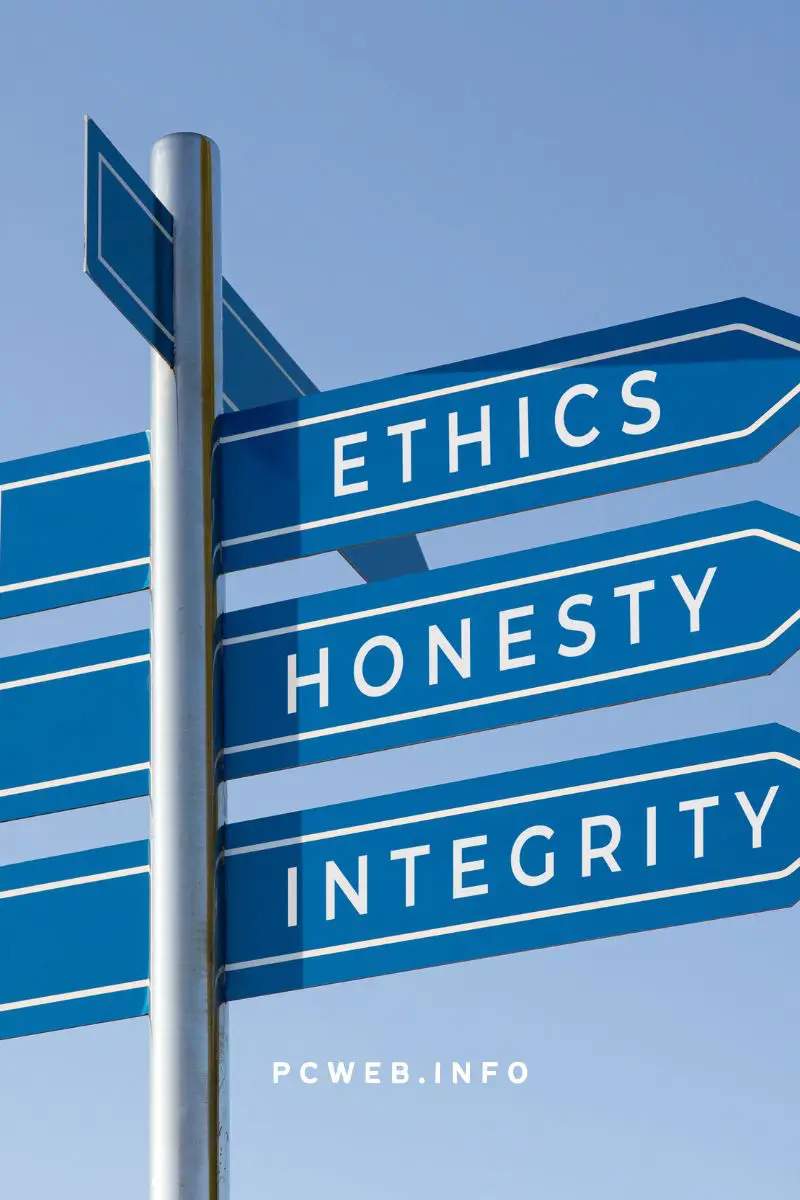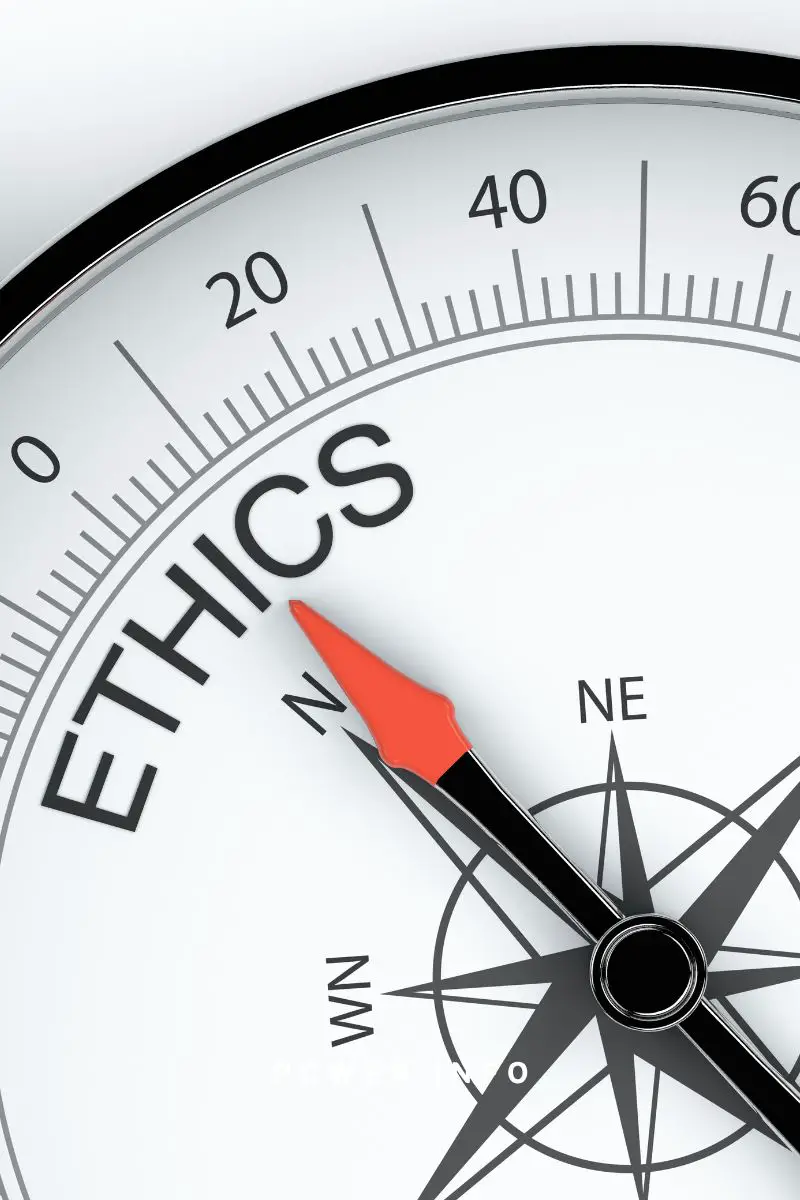The Basics of Ethics: What You Need to Know. Ethics, a branch of philosophy, delves into questions about morality, the concepts of right and wrong, and the moral compass that guides human behavior. In a world increasingly interconnected and diverse, understanding the basics of ethics is not just an academic exercise but a necessary tool for navigating complex social, professional, and personal landscapes.

Understanding Ethics
Definition and Scope
At its core, ethics entails the systematic analysis, justification, and advocacy of principles regarding what constitutes right and wrong conduct. It transcends cultural, religious, and societal norms to address universal questions about morality. The scope of ethics is broad, covering various subfields like medical ethics, business ethics, and environmental ethics, each focusing on specific ethical dilemmas in different domains.
Historical Context
Ethics, as a field of philosophical inquiry, has a rich and varied history that spans several millennia and crosses numerous cultural and intellectual landscapes. Understanding this historical context provides a deeper insight into how ethical thought has evolved and shaped our current perspectives on morality.
Ancient Foundations
The origins of ethical thought can be traced back to ancient civilizations, where questions of morality were often intertwined with religious and societal norms. In ancient Egypt, the concept of Ma’at represented truth, balance, and order, which was integral to their understanding of morality. Similarly, in ancient India, the Dharmic religions introduced concepts of duty and righteousness.
Greek Contributions
The ancient Greeks made significant contributions to the field of ethics. Socrates, often considered the father of Western moral philosophy, emphasized the importance of self-knowledge and the pursuit of virtue. His dialectical method encouraged critical thinking and questioning of moral assumptions.
Plato, a student of Socrates, introduced the idea of ideal forms, suggesting that moral truths are eternal and unchanging. His work in “The Republic” discusses justice and the just society, focusing on the role of individuals and their virtues in achieving societal harmony.
Aristotle, a student of Plato, further developed ethical thought in his work “Nicomachean Ethics”. He introduced virtue ethics, focusing on the development of good character traits or virtues, such as courage and temperance, as the foundation for ethical living. Aristotle’s emphasis on the practical application of ethics to everyday life laid the groundwork for much of Western ethical thought.
Medieval and Renaissance Periods
During the medieval period, ethical thought was heavily influenced by religious teachings, particularly within the Christian, Islamic, and Jewish traditions. Thomas Aquinas, a notable Christian philosopher, integrated Aristotelian ethics with Christian theology, emphasizing natural law and the role of reason in understanding God’s will.
The Renaissance brought a renewed interest in classical philosophy, leading to a more human-centric approach to ethics. This period witnessed the emergence of humanism, which emphasized human dignity, potential, and the importance of secular concerns in ethical considerations.
Enlightenment and Modern Ethics
The Enlightenment marked a significant shift in ethical thought, characterized by an emphasis on reason, individualism, and a questioning of traditional authority. This period saw the development of several key ethical theories.
Immanuel Kant, a central figure of the Enlightenment, proposed deontological ethics, which argues that the morality of an action is based on whether it adheres to a set of rules or duties. Kant’s emphasis on duty and his formulation of the Categorical Imperative were groundbreaking.
Utilitarianism, developed by philosophers such as Jeremy Bentham and John Stuart Mill, introduced a different approach. This consequentialist theory posits that the morality of an action is determined by its outcomes, specifically its ability to maximize happiness or pleasure.
Contemporary Ethical Thought
In the 20th century, ethical thought diversified further, with increased focus on applied ethics in areas such as business, medicine, and the environment. Philosophers like John Rawls and Robert Nozick introduced theories of justice and political philosophy, while existentialists like Jean-Paul Sartre explored the ethical implications of freedom and individual choice.
The late 20th and early 21st centuries have seen ethical discussions expand to include issues such as bioethics, digital ethics, and global justice. These discussions reflect the complexities of modern life and the challenges posed by technological advancement and globalization.
Ethical Theories

Ethical theories form the foundation of moral philosophy, providing frameworks for understanding and evaluating human actions and intentions. These theories have evolved over centuries, offering diverse perspectives on what constitutes right and wrong. To gain a comprehensive understanding of ethics, it is essential to delve into the key theories that have shaped ethical thought.
Consequentialism: Ethics of Outcomes
Consequentialism, a major school of thought in ethics, posits that the morality of an action is determined solely by its consequences. The central tenet is that an action is morally right if it leads to a desirable outcome and wrong if it leads to undesirable consequences.
Utilitarianism
The most prominent form of consequentialism is utilitarianism, pioneered by philosophers Jeremy Bentham and John Stuart Mill. Utilitarianism asserts that actions are right if they promote happiness and wrong if they produce the opposite. This happiness is often understood in terms of pleasure or the absence of pain. Utilitarianism is democratic in its approach, considering the happiness of all affected individuals equally.
Critiques and Variations
Critics of consequentialism argue that it can justify morally questionable actions if they lead to good outcomes. To address such concerns, variations like rule utilitarianism and preference utilitarianism have emerged. Rule utilitarianism suggests adhering to rules that generally lead to good outcomes, while preference utilitarianism considers actions right if they align with the preferences of those affected.
Deontology: Ethics of Duty
In contrast to consequentialism, deontology focuses on the intrinsic morality of actions, regardless of their outcomes. This theory is closely associated with Immanuel Kant, who argued that moral actions are those performed out of a sense of duty and adherence to universal moral laws.
Kantian Ethics
Kant’s deontological framework introduces the Categorical Imperative, a principle stating that one should act only according to that maxim by which you can at the same time that it should become a universal law. This principle emphasizes universalizability and respect for individuals as ends in themselves.
Challenges and Adaptations
Deontology is often criticized for its rigidity and potential conflicts between duties. To address these, contemporary deontologists have refined the theory, introducing concepts like prima facie duties, which are duties that are binding unless overridden by a more pressing duty.
Virtue Ethics: Ethics of Character
Virtue ethics, rooted in the teachings of Aristotle, focuses on the development of virtuous character traits. It emphasizes the importance of moral character and virtues in ethical behavior, rather than rules or consequences.
The Role of Virtues
In virtue ethics, virtues are habitual dispositions to act in ways that benefit both the individual and society. Examples of virtues encompass qualities such as bravery, self-restraint, and insightfulness.. The virtuous person is one who possesses a well-balanced character and exercises these virtues consistently in their actions.
Contemporary Relevance
Virtue ethics has seen a resurgence in recent decades, offering a holistic approach to ethics that integrates emotions, moral education, and community involvement. It is particularly relevant in addressing moral dilemmas that involve complex human relationships and emotions.
These three major ethical theories—consequentialism, deontology, and virtue ethics—provide distinct lenses through which to view moral questions. Each theory contributes valuable insights, highlighting different aspects of moral reasoning, from the outcomes of actions to the intentions behind them and the character of the individual. Understanding these theories offers a comprehensive framework for navigating the ethical challenges of both personal and professional life.
Ethical Decision-Making

The Role of Rational Thinking
Ethical decision-making often involves rational deliberation. It requires weighing the pros and cons of actions, considering the impact on all stakeholders, and aligning decisions with ethical principles.
Emotions and Morality
Emotions also play a significant role in ethics. Empathy, for instance, can guide individuals to make compassionate decisions. However, emotions must be balanced with rational thought to avoid biased or impulsive decisions.
Cultural and Societal Influences
Cultural norms and societal values significantly influence ethical perceptions. What is considered ethical in one culture might be viewed differently in another. Understanding and respecting cultural differences is vital in global interactions.
Ethical Dilemmas and Challenges
Complexity of Modern Life
Today’s globalized world presents complex ethical dilemmas. Issues like climate change, artificial intelligence, and genetic engineering require a nuanced understanding of ethics.
Relativism vs. Universalism: The Basics of Ethics
Ethical relativism suggests that morality is relative to the norms of one’s culture. In contrast, ethical universalism posits that some moral standards are universally applicable. This tension is central to many ethical debates.
Balancing Personal and Professional Ethics
Individuals often face conflicts between personal morals and professional ethics. Navigating these conflicts requires a deep understanding of both personal values and professional codes of conduct.
Ethics in Professional Life
Importance in Business and Professions
In business, ethical practices are crucial for sustainability and reputation. Professions like medicine and law have established codes of ethics to guide practitioners in making ethical decisions.
Ethical Leadership
Ethical leadership involves leading by example, promoting ethical behavior among employees, and maintaining a culture of transparency and accountability.
Conclusion
Ethics, as a philosophical study, equips individuals with the tools to make informed decisions that are not just legally compliant but also morally sound. In our ever-evolving world, the importance of understanding and applying ethical principles cannot be overstated. Whether in personal life, professional settings, or broader societal interactions, a strong ethical foundation is essential for fostering trust, respect, and harmony in our interconnected world.
Read also: Travel Agency Code of Ethics; Ethics in Medical Research; Ethics in accounting; Ethics for engineers; Wikipedia
- Adultery in the New testament (7) - July 3, 2025
- PAULINE FOURÈS: Biografía e historia, lo que no sabías (1) - July 3, 2025
- Datos semiestructurados, definición, que son, tipos; ventajas y desventajas; lo que no sabías (1) - June 9, 2025